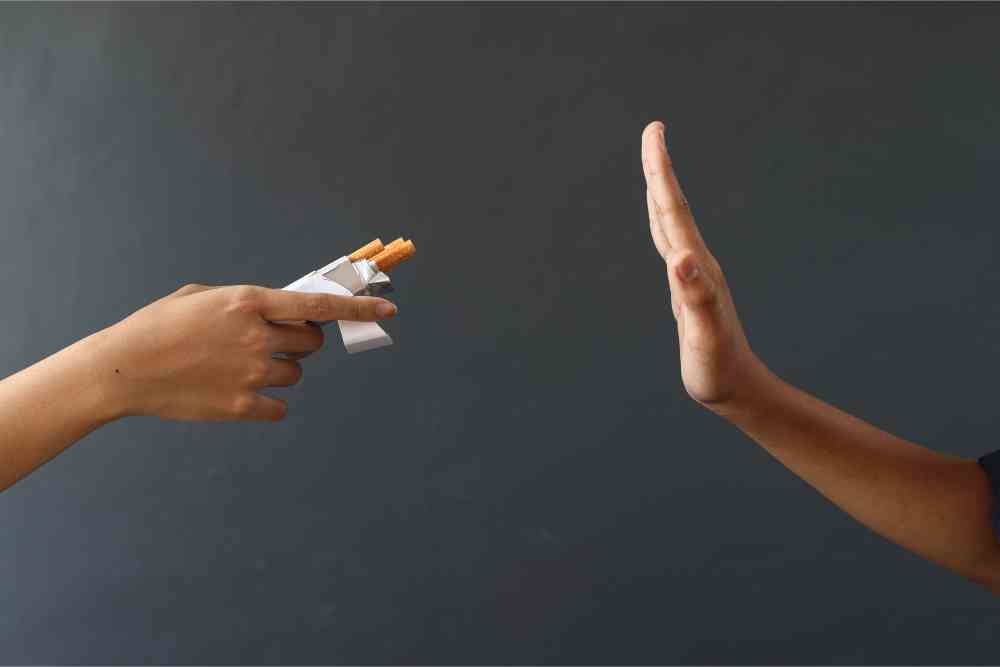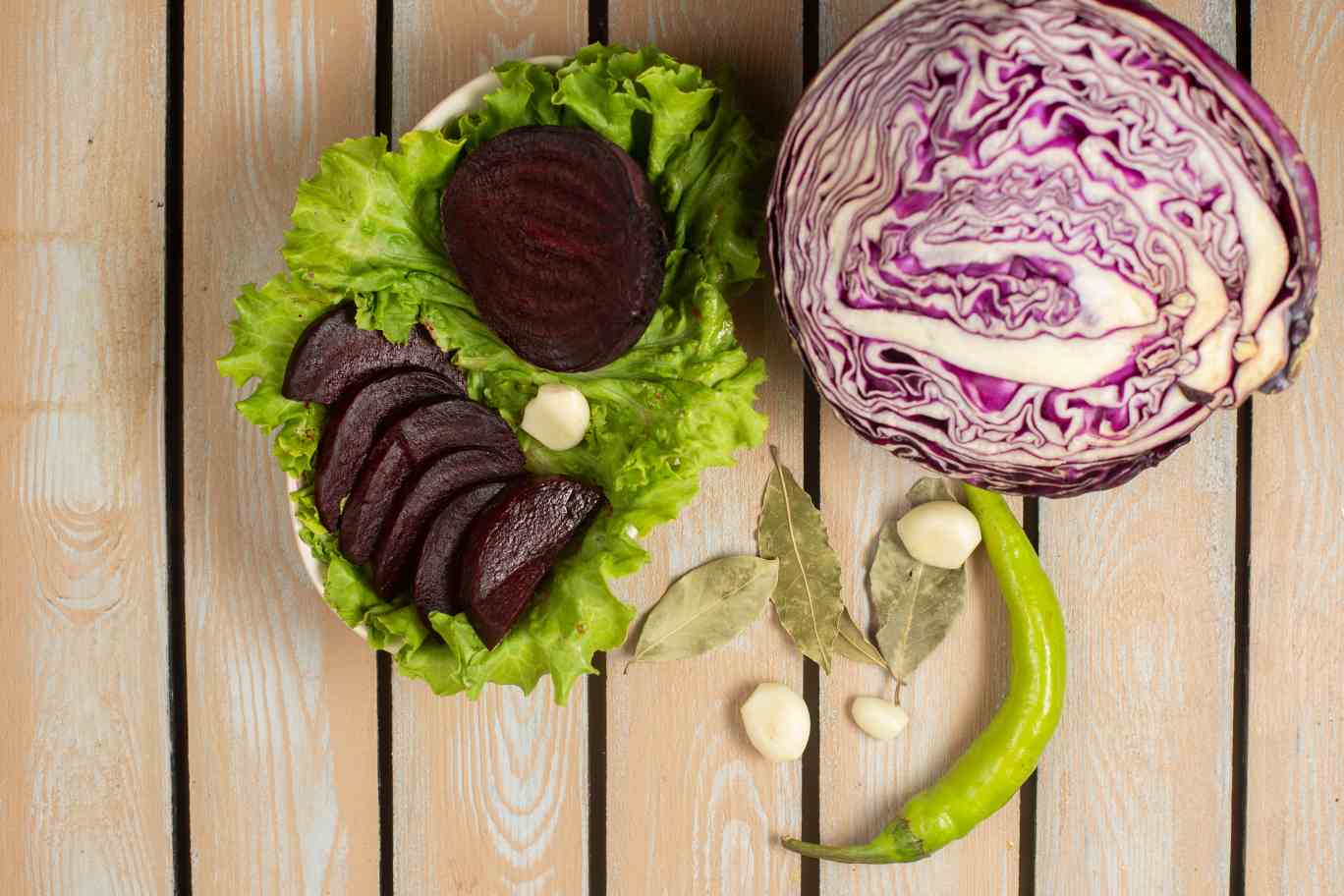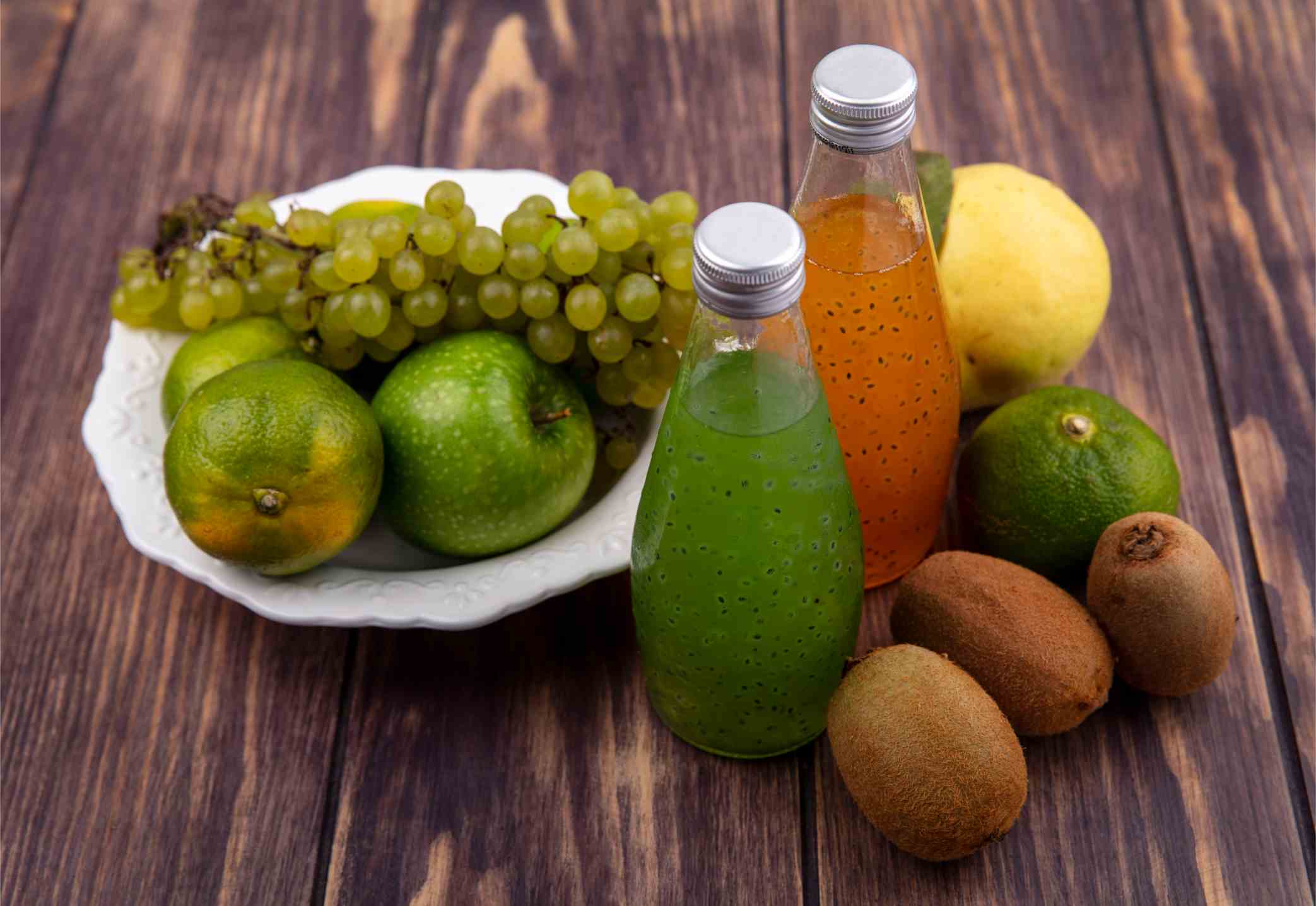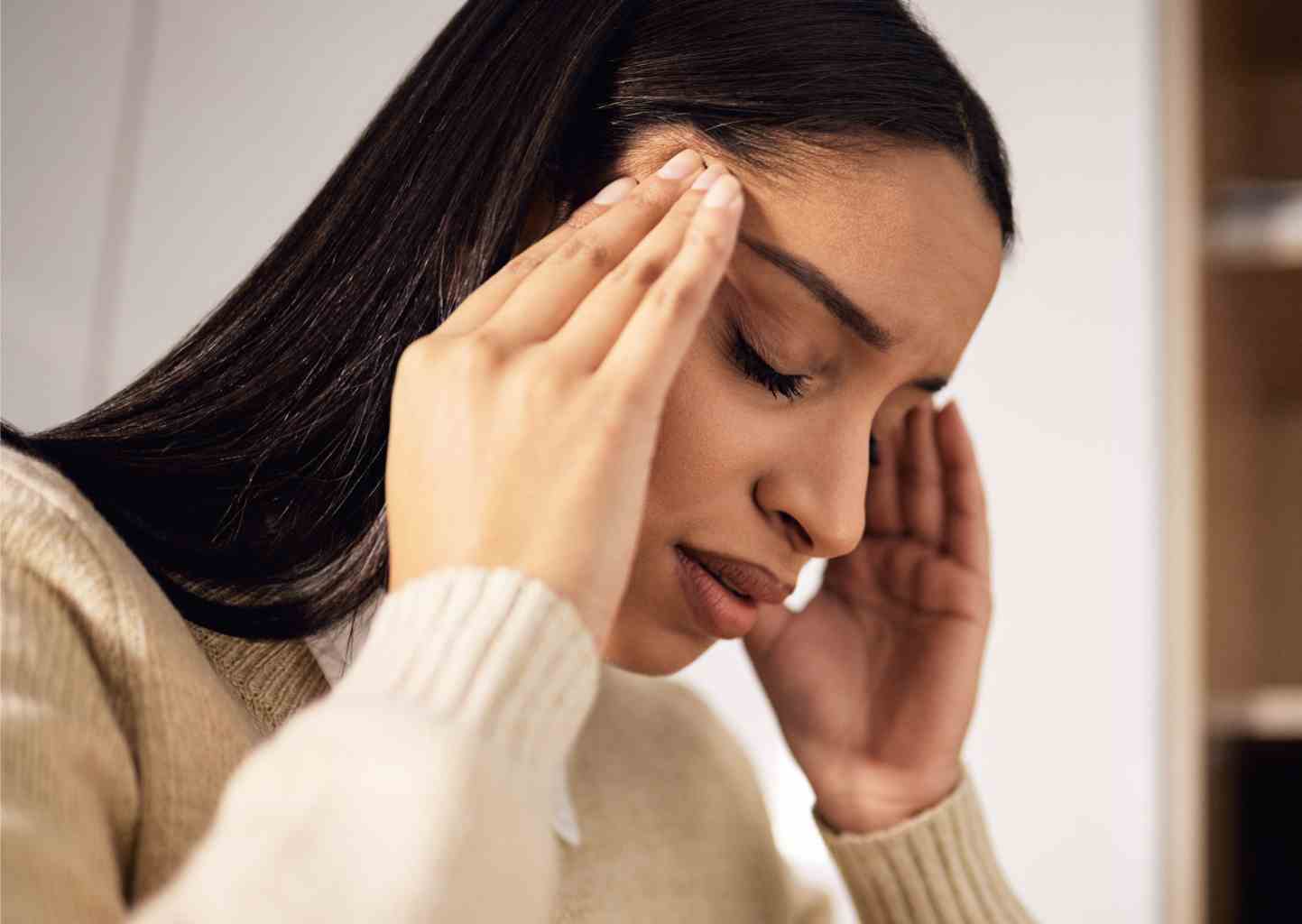What is Detox Dieting and How Does it Work?

The detox diet is gaining increasing popularity among youngsters. This is primarily due to recent news of celebrities opting for such a diet. Detox dieting claims to clean the blood by flushing out toxins. However, the mechanism of this cleansing needs to be clarified, leading to unspecified results.
Learn more about detox diets, including their benefits, effectiveness, and food sources.

Table of Contents

What Is a Detox Diet?
A detox diet refers to a dietary regimen that involves alterations in consumption habits to eliminate toxins and other contaminants from the body.
A typical detox diet involves a period of fasting, followed by a strict diet of raw vegetables, water, fruits, and juices. Some detox diets also include herbs, supplements, and colon-cleansing food items.
Fast-paced lifestyles, poor food choices, pollution, and exposure to harmful chemicals lead to toxin accumulation in the body. These are chemicals that harm the body.
Detox dieting helps to get rid of these toxins.
Is a Detox Diet Effective?
Detox diets have gained excessive popularity, but their effectiveness remains debated. Advocates claim that they cleanse the body of toxins, while critics argue that the body naturally detoxifies them. There is limited scientific evidence supporting detox diet efficacy, with mixed study results. Some research also suggests short-term benefits like weight loss and improved digestion.
However, a detox diet's long-term effects and sustainability are still uncertain. The effectiveness of a detox diet may vary among many individuals based on factors like lifestyle and health status.
What Are the Benefits of a Detox Diet?

A detox diet is often praised for its potential to cleanse the body and improve overall well-being. By focusing on eliminating toxins, it aims to enhance bodily functions and promote a healthier lifestyle. Let's explore some key benefits that detox dieting may offer.
Besides providing mental peace, detox dieting offers numerous benefits. These are discussed below:
Supports the Digestive System and Aids in Weight Loss
A detox diet removes toxins from the body, aiding in better absorption of vitamins and other nutrients. Also, such a diet is known to change metabolism and promote long-term weight management.
Uplifts Mental Health
The benefits of a detox diet are well reflected in the mental health of individuals practising it. This diet plays a crucial role in ensuring sound sleep, bringing clarity and focus, and improving mental health overall. Also, a detox diet delays signs of ageing.
Promotes Healthy Skin and Hair
The Detox diet claims to remove toxins from the body, resulting in healthy and glowing skin. This diet plan may help fight acne germs, thus reducing acne problems and ensuring clear skin.
Also, this diet is believed to make hair shinier and longer as the toxins at the follicles get removed, allowing hair growth.
Boost Immune System
During detox dieting, many vitamins and minerals get absorbed into the bloodstream. Hence, all the vital organs receive enough nutrients to have a healthy and strong immune system.
Increases Antioxidant Content
A detox diet includes a wide variety of fruits. So, when individuals opt for a detox diet, they get enough antioxidants, including vitamins A, C, and E. Higher levels of antioxidant content help improve blood circulation.
Enhances Energy Levels
Detox diets, by prioritising whole, nutrient-dense foods while eliminating processed options, provide the body with a sustained energy source. This energy boost often results from consuming foods rich in vitamins, minerals, and antioxidants, which support optimal cellular function and metabolic processes.
As a result, individuals may experience increased vitality, reduced feelings of lethargy, and improved overall productivity throughout the day.
Reduces Inflammation
Chronic inflammation is linked to numerous health conditions, including heart disease, diabetes, and autoimmune disorders. Detox diets, which emphasise the consumption of anti-inflammatory foods such as fruits, vegetables, and omega-3 fatty acids, can help reduce inflammation in the body.
These foods contain potent antioxidants and phytonutrients that combat oxidative stress and neutralise free radicals, thereby mitigating inflammatory processes and promoting overall health and well-being.
Promotes Hydration
Hydration supports virtually every bodily function, from regulating body temperature to facilitating nutrient transport and waste elimination. Detox diets often encourage increased water intake and consumption of hydrating fluids such as herbal teas and infused water.
By staying adequately hydrated, individuals can optimise cellular function, promote detoxification processes, and maintain optimal health and vitality.
Encourages Healthy Habits
A detox diet often catalyses adopting healthier eating habits and lifestyle choices. By prioritising whole, unprocessed foods and eliminating or reducing intake of refined sugars, unhealthy fats, and artificial additives, individuals develop a greater appreciation for nutritious eating.
Furthermore, the mindfulness and intentionality inherent in detox diets can extend beyond food choices to encompass other aspects of self-care, such as regular exercise, stress management, and adequate sleep, leading to comprehensive improvements in overall health and well-being.
Besides knowing the advantages of a detox diet, individuals must learn about other important facts.
What Do Detox Diets Include?

Detox dieting can take various forms. It may range from days of complete starvation to lesser food consumption and simple food habit modifications.
Notwithstanding the type, most detox diets include at least one of the following –
Complete fasting for 1-3 days.
Intake of supplements or herbs.
Relying on specific liquids such as lemon juice.
Drinking fruit and vegetable juices, tea, water, and smoothies.
Avoiding heavy metal-rich foods.
Introducing laxatives, enemas, or colon cleansers.
Eliminating refined sugar, coffee, cigarettes, alcohol.
Avoiding food allergens and slowly reintroducing them after some time.
How to Start a Detox Diet?
Embarking on a detox diet requires careful planning and consideration to ensure its effectiveness and safety. Individuals can begin with a detox diet by following the steps mentioned below:
- Step 1: First, visit a doctor or nutritionist and discuss the consequences of following a detox diet.
- Step 2: Stop taking stimulants, including caffeine, alcohol, and cigarettes, before starting the detox diet. Individuals can replace these items with water, lemon water or herbal tea.
- Step 3: Select the type of detox diet and detox foods that suit you. Dietary intake can vary from person to person based on physique and calorie consumption.
- Step 4: Initially, a detox diet can cause headaches and nausea due to toxin removal. Hence, individuals must prepare themselves beforehand.
- Step 5: Avoid exercising while on this diet. As the body has a reduced calorie supply, exercising would cause energy loss and fatigue.
- Step 6: During this diet, one’s tongue can get coated. In such cases, one must use a tongue scraper to remove layers of bacteria.
- Step 7: After completing detox dieting, individuals can start consuming solid food items if they have omitted the diet. However, they must introduce these items slowly as sudden intake can disturb the digestive system after an interval.
Detox Foods for Weight Loss

Incorporating detox foods into your diet can aid in weight loss by promoting better digestion and nutrient absorption. These foods are typically rich in antioxidants, fibre, and essential nutrients that support the body's natural detoxification processes.
Following is a list of foods that detoxify one’s body.
Lemon
Garlic
Ginger
Beetroot
Cabbage
Fresh Fruit
Artichoke
Watercress
Brown Rice
Detox Drinks for Weight Loss

Detox drinks, on the other hand, can be a refreshing way to support weight loss efforts while aiding the body’s detoxification. These beverages often combine natural ingredients that help boost metabolism, flush out toxins, and enhance hydration.
Here is a list of detox drinks individuals can choose for their diet.
Lemon and Ginger Drink
Cucumber and Mint Drink
Orange Carrot Ginger Drink
Green Tea
Cinnamon Water With Honey
Honey, Lemon Ginger Tea
Ginger Litchi Lemonade
Cumin Lemon Water
Coriander Water
Vetiver Water
Fenugreek Water
Exercises for a Detox Diet
Incorporating exercise into a detox diet regimen can enhance the body's natural detoxification processes, promote circulation, and support overall well-being. Here are some effective exercises to complement your detox diet:
Yoga

Practising yoga poses, especially twisting poses like the spinal twist, can stimulate the internal organs and aid in digestion and detoxification.
Cardiovascular Exercises

Activities such as running, cycling, or swimming increase heart rate and circulation, facilitating the removal of toxins through sweat and improving blood flow.
Strength Training

Resistance exercises help build lean muscle mass, which boosts metabolism and supports the body's detoxification efforts by burning excess fat stores.
HIIT Workouts

High-intensity interval training (HIIT) sessions enhance metabolism, promote detoxification, and improve cardiovascular health through short bursts of intense exercise followed by brief rest periods.
Jumping Rope

Jump rope workouts are an excellent way to increase lymphatic circulation, which assists in removing toxins and waste products from the body.
Pilates

Pilates exercises focus on core strength, flexibility, and alignment, promoting better posture and aiding in toxin elimination through improved organ function and circulation.
Who Should Do Detox Dieting?
Detox diets can benefit those seeking to cleanse their bodies, kickstart healthier eating habits, or achieve short-term weight loss. Given below are a few:
- Generally Healthy Individuals: Those without underlying health issues may safely try a detox diet, but consultation with a healthcare provider is recommended.
- Individuals Seeking Short-Term Weight Loss: Detox diets may provide short-term weight loss benefits for some individuals, but long-term sustainability is uncertain.
- People Interested in Healthier Eating Habits: Detox diets can help people adopt healthier eating habits by emphasizing whole foods and eliminating processed items.
Who Should Avoid Detox Dieting?
While detox diets offer various potential benefits, they may not be suitable for everyone and can pose risks for certain groups. Individuals with specific health conditions or dietary needs should be cautious or avoid these diets to prevent adverse effects. Below is a list of who should approach detox diets cautiously or avoid them altogether.
- Pregnant or Nursing Women: Detox diets can restrict essential nutrients necessary for fetal development or breastfeeding.
- People with Certain Medical Conditions: Those with diabetes, heart disease, kidney disease, or other chronic conditions should consult a healthcare provider before attempting a detox diet, as it may affect their medical management.
- Individuals with a History of Eating Disorders: Detox diets may trigger disordered eating patterns or exacerbate existing eating disorder symptoms.
- Children and Adolescents: Detox diets are generally unsuitable for individuals under 18 years old due to their increased nutrient needs for growth and development.
Does the Body Detox after Following a Detox Diet?
As stated in the introductory paragraph, a detox diet aims to eliminate toxins from the body. However, there is no proof of how this diet works or the number of necessary nutrients it flushes out of the body. However, detox dieting is considered effective in getting rid of toxins in the body.
One must note that the effects of a detox diet vary from one individual to another. For example, some people feel more energetic and focused after completing this diet. This may result from less processed food, alcohol, and other high-calorie and low-nutritious foods. On the other hand, various reports show people feeling unwell during the detox period.
Do Detox Diets Have Any Side Effects?

Though a detox diet helps lose weight, it is not considered safe for certain people. These include children, teenagers, pregnant women, people with a history of eating disorders, and people with medical conditions like heart disease and diabetes.
Further, detox dieting has some side effects. These are discussed below –
- Headaches: Detox diets can cause headaches, often due to the sudden elimination of caffeine or sugar.
- Tiredness and Fatigue: Reduced calorie intake during a detox diet can lead to feelings of tiredness and fatigue.
- Restlessness: Some individuals may experience restlessness due to changes in their regular diet and withdrawal from stimulants.
- Sleeping Problems: Detox diets can disrupt sleep patterns, potentially causing insomnia or difficulty staying asleep.
- Irritability: Mood swings and irritability might occur, particularly during the initial stages of a detox diet.
- Skin Problems: Detox diets can sometimes cause skin issues, such as rashes or acne, as the body expels toxins.
- Diarrhoea: Increased intake of fruits, vegetables, or juices can lead to diarrhoea due to high fibre and water content.
- Constipation (depending on the detox diet one takes): Certain detox diets may cause constipation, especially if they lack adequate fibre or hydration.
- Anxiety: The stress of adhering to a restrictive diet can trigger anxiety or heightened stress levels.
- Low Blood Sugar: Detox diets can result in low blood sugar, which can cause dizziness, weakness, or fainting.
- Cramping: Inadequate intake of electrolytes or sudden dietary changes can lead to muscle cramps.
- Bloating: Bloating can be caused due to increased fibre intake or changes in digestion.
Now that you know the meaning of a detox diet and its benefits and impacts, you can prepare and plan a suitable diet accordingly.
However, individuals must consult a doctor or nutritionist before taking up detox dieting to avoid unwanted health issues.













